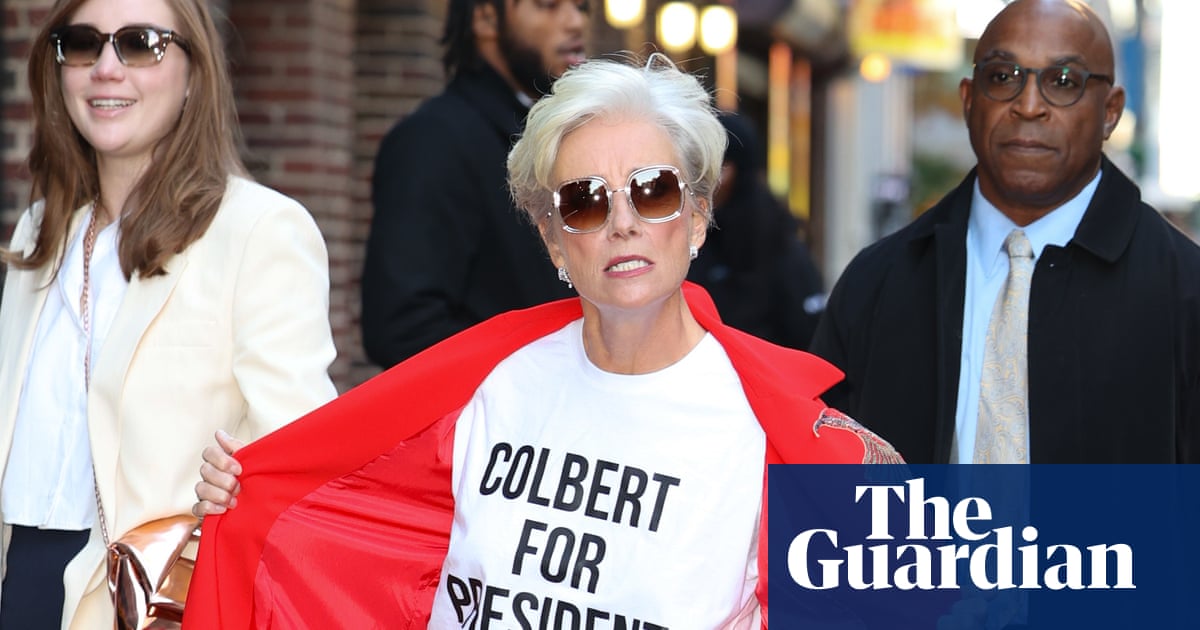Bestowed on an elite few, the mantle of Noted Film-maker can be both a crown and a burden. On the positive side, it can serve as protection: viewing an ennobled director’s films through this prism, auteurist critics can feel obliged to make excuses for even the worst among them. (The rationale is that a bad film by a Noted Film-maker is still better than the best efforts of a jobbing hack.) One disadvantage is that such honorifics can leave a creative patrolling a very narrow courtyard, searching only for material worthy of a Noted Film-maker; another is that the dismay when a project doesn’t spark is all the greater. A prominent test case has just reached Netflix in the Kathryn Bigelow-directed A House of Dynamite, a not-so-heavy-hitter that – if texts from cinephile pals this past weekend are anything to go by – seems nailed on for only one award this season: that for Gravest Disappointment.
To determine why the film has underwhelmed so, we must retrace its director’s steps. Bigelow earned her laurels with a run of expansive, limber genre pics: biker flick The Loveless, the rangy vamp saga Near Dark, cop thriller Blue Steel, the enduring Keanu/Swayze actioner Point Break. Clearer indication of her direction of travel came with 1995’s underheralded Strange Days, an electrifying future-now thriller, informed by the Rodney King case, which also doubled as a cautionary fable about the perils of abandoning reality to seek shelter in the virtual realm. (Bigelow proved more alert to this than her screenwriter/ex-husband James Cameron, currently prepping the release of Avatar 3.) Yet post-2001, with her reputation growing, Bigelow – like her homeland – was forced on the defensive. The Hurt Locker and Zero Dark Thirty broached America’s then-recent misadventures in the Middle East; Detroit, released in the summer of Charlottesville, entered into fractious conversation with the country’s long history of racism.
You can understand why a film-maker on this trajectory might be drawn towards Dynamite’s script – penned by Noah Oppenheim, the former NBC News chief who penned Netflix’s recent, De Niro-led series Zero Day – and why the streamer would enthusiastically stump for a nuclear-panic thriller after Oppenheimer’s Oscars sweep. (One pitch for the new film: what if Oppenheimer, but now?) Dynamite is at its strongest early on, describing in something like real time the 19 minutes in which a missile launched somewhere in the Pacific by unknown parties is spotted on the radars of a US army base in Alaska and flagged to the White House situation room, en route towards what everyone learns is its target: downtown Chicago. In this first section, Bigelow and Oppenheim briskly accelerate the stakes while engaging in an intriguing temporal brinkmanship: we’re set to wondering where this two-hour film can possibly go once the countdown clock reaches zero.
The answer – and here’s where the disappointments begin – is back to the beginning: the film subsequently shuffles between the perspectives of those higher-ups (Tracy Letts’ general, secretary of defence Jared Harris and president Idris Elba) the prologue glimpsed or heard only in passing. Structurally, the film can’t develop: it’s a two-hour movie with fewer than 20 minutes of plot, leaving Oppenheim to revisit that first reel multiple times, each pass trowelling on moot procedural points while edging everybody closer to the dreaded big bang. Previous Bigelow films had a tight grip on cause-and-effect; her best films as a Noted Film-maker, The Hurt Locker and Zero Dark Thirty, were definitionally all consequence. But here, the inciting incident is also the final play; the drama gets interesting at the exact moment the film fades to black. The characters are left wondering: “Is that it?” We are, too, for different reasons.
While the scenario spins in ever decreasing circles, like a doomy Groundhog Day, we’ve ample time to consider the deleterious effect Netflix money has had on the look of American cinema. Even on the big screen, Dynamite struck the eye as flatly familiar, Barry Ackroyd’s cursory handheld lensing recalling 24 or The West Wing or recent Netflix content recycling the same sets, up to and including Zero Day. If Bigelow the Noted Visual Film-maker disappears, so too does Bigelow the Noted Feminist Film-maker: Rebecca Ferguson, outlined in that opening reel as potentially another of this director’s tough-minded working women, clocks off early, so once more it’s left to a cabal of frowning men to try to prevent the world’s end. The verve Bigelow brought to her pulpier breakthrough films vanishes with her; maybe after Detroit’s commercial underperformance, the film-maker felt she had to rein in her risk-taking, but a script this talky required some compensatory pyrotechnics.
The fear A House of Dynamite most potently evokes, then, isn’t nuclear annihilation, but a director’s terror of being thought unworthy; tensing up and practically fossilising as it goes along, it’s hardly surprising the film should have been overtaken by recent, recontextualising events. What this screenplay assumes is that those occupying positions of operational authority would be trained specialists, conscientious to the core and that the biggest threat to Chicago in late 2025 would come from some place other than the White House. Where earlier Bigelow films felt like fiercely engaged reflections on their moment, Dynamite – the first of this director’s recent works to fall somewhere between afterthought, distraction and outright irrelevance – instead spends two listless hours scrabbling around hopelessly behind the curve. It’s not tense for a reason: even before the rogue missile first registers on a radar, the America Bigelow’s film describes has been blown to smithereens.

.png) 3 hours ago
6
3 hours ago
6

















































